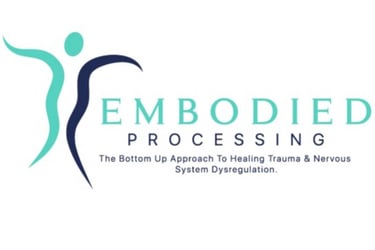Understanding Our Emotions: A Guide to Self-Awareness
The importance of emotional awareness and how to become aware of your emotions
Maria Hancock
11/28/20244 min read
The Importance of Emotional Awareness
Emotional awareness plays a critical role in our well-being. It serves as the foundation for recognising, understanding, and expressing our feelings effectively. When we have a good sense of our emotions, we are able to communicate with those around us, which improves our relationships. Emotions play a critical role in our daily lives, influencing our thoughts, behaviors, and interactions with others.
Despite its significance, many of us find it difficult to freely express ourselves. Societal norms often dictate what emotions are acceptable, leading many to suppress their true feelings. Many of us often face difficulties in articulating our feelings, particularly emotions such as sadness, anger, and frustration. Additionally, the fear of vulnerability can discourage people from acknowledging their emotions, resulting in a reluctance to confront their emotional states. Past experiences, particularly trauma, can further complicate emotional recognition, causing individuals to shy away from their feelings out of self-preservation. However, no emotion is bad, as even anger can be positive when used in the right way at the right time - don't we need anger to stand up for what is wrong and protect ourselves for example?
So how do we end up becoming cut off from our emotions? When I was a child, I was often (like most children) told off when I expressed my anger. I was also extremely scared of my dad's anger, as even just a look from him could lead me to run upstairs to hide out of fear. I therefore learned that it was dangerous to express anger and therefore I learnt to suppress it. To my body-mind, anger was a threat to my existence and so it was repressed as a survival response. When an emotion is suppressed by the subconscious mind, we are not aware of what is happening as it has become habitual, so we don't often know we have a problem with emotional expression.
Ignoring emotions can have detrimental consequences. When you have repressed emotions, they still reside within your body-mind - they are bottled up yearning to be listened to. We tend to think of our thoughts and feelings as being confined to our minds, separate from our physical bodies, but in reality, the mind and body are one system. Everything we think and feel affects us physically, and vice versa. The physical and psychological toll of bottling up emotions cannot be overstated. Studies have shown that suppressed feelings can lead to increased stress levels, making the body more susceptible to various health issues. It is known that anxiety, depression and stress often surface when emotions are repressed. Chronic emotional suppression is often linked to burnout and emotional fatigue, conditions that impact not only mood but overall quality of life. There is also substantial research linking chronic pain with chronic stress and past trauma, as well as evidence connecting adverse childhood experiences with the onset of chronic pain and other major health issues later in life.
Further, studies show a relationship between chronic stress, trauma, and inflammatory responses in the body. The inflammatory response occurs when the 'fight or flight' reaction is activated, which helps explain the connection between pain and inflammation.
Many of those I help have a lack of emotional awareness, and therefore I see improving this awareness as part of the way to assist recovery. The more we repress or ignore our emotions, the more we are creating stresses in our lives, which can perpetuate and create pain and other symptoms. It is often the case that chronic pain first appears during times of stress, change or trauma, (or just after).
Techniques for Recognising Your Emotions
Recognizing and expressing emotions accurately is fundamental to enhancing emotional intelligence. One effective technique is journaling, which allows you to articulate your feelings on paper. By regularly writing about daily experiences and the emotions tied to them, you can identify patterns and triggers that influence your emotional states. The act of reflecting through journaling not only aids in recognition but also encourages deeper self-exploration. I often encourage clients to journal for 20 minutes a day, either about current or past events that have caused stress.
Mindfulness practices serve as another powerful tool for emotional recognition. Techniques such as guided meditation, deep breathing, and body scanning help you to become more aware of your present emotional experiences. By cultivating mindfulness, you can observe your emotions without judgment, fostering a non-reactive approach to emotional challenges. This heightened awareness enables you to recognize subtle emotional shifts and respond to them more effectively. I have a number of mindfulness meditations available here for you to try.
Emotional check-ins can be a very beneficial strategy for self-awareness. Setting aside specific times throughout the day to assess your emotional state allows for real-time recognition of feelings. This practice can be as simple as asking yourself, “How am I feeling right now?” and taking a moment to explore the answer by turning towards sensations within your body. Such check-ins promote a proactive attitude toward emotional well-being.
By employing these techniques—journaling, mindfulness, and emotional check-ins, we can develop a greater awareness of our emotions. This, in turn, fosters greater well-being, healthier relationships and enhances overall emotional intelligence.
Do you need help with understanding your emotions? Perhaps you'd like to make an appointment to discuss how I can help? Feel free to reach out here.


A build up of unresolved emotions can negatively impact our life and relationships, icluding triggering or perpetuating health conditions and pain. Here, I will explain the importance of emotional awareness, why it is often difficult to express emotions and what to do to improve your awareness of emotions.






TMS, PPD, Mind-Body Syndrome, Perceived Danger Pain, Neuroplastic Pain Syndrome, Chronic Pain Recovery Practitioner in Horley, Surrey, UK and Online Internationally. (English speaking only).
